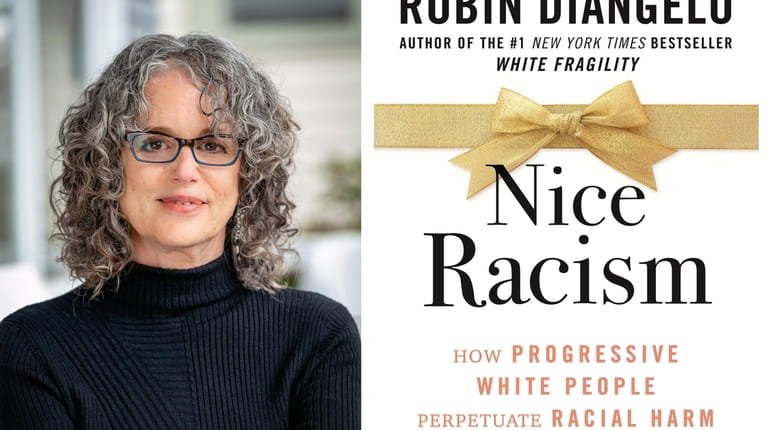When antiracists perpetuate harm

Robin DiAngelo (photo by Stuart Islett) and the cover of her new book, "Nice Racism" (Photo: Beacon Press)
The antiracist movement that has gathered momentum in recent years, especially since last summer’s protests, has a noble goal: to remedy racial inequities that remain all too real. Yet it has also generated a backlash among many who agree with the goal but reject the tactics. For a stark example of the "antiracism" these objectors regard as counterproductive, look no further than popular diversity guru Robin DiAngelo, now on her second bestselling book.
DiAngelo’s thesis, first stated in her 2018 book "White Fragility," can be summed up as follows: All white people are steeped in white supremacist attitudes constantly reinforced by our culture. The only way they can avoid oppressing nonwhites is by doing constant "antiracist work." If they take umbrage when accused of racism, that’s "white fragility," which inhibits conversations about race and helps maintain white supremacy.
Last year, "White Fragility" rose to the top of the bestseller lists as an antiracist bible, though even some progressives criticized its simplistic formulas. Demand for DiAngelo’s antiracism workshops soared. Now her new bestseller is out, "Nice Racism: How Progressive White People Perpetuate Racial Harm."
While largely recycling the earlier book, "Nice Racism" opens with a revealing anecdote, which confirms what many of DiAngelo’s critics have suspected: that her insistence on seeing deep-seated racism in all white people was a projection of her own issues. In college, DiAngelo writes, she and her then-girlfriend went to dinner with another couple who turned out to be Black. DiAngelo, who had had little experience with Black people, was thrilled but also felt an urgent need to prove she wasn’t racist — by talking nonstop about her family’s awful racism and regaling the clearly uncomfortable couple with her relatives’ racist jokes and comments.
DiAngelo now realizes she was being self-centered and oblivious. But another problem was that she saw the other couple as generic Black people, not individuals. Yet instead of learning this lesson, she relentlessly preaches the evils of individualism and the virtues of racial labeling. In her world, people never interact as individuals: If you’re white and inadvertently interrupt a Black co-worker, you have committed a racist act and perpetrated terrible "harm." (For all the "white fragility" talk, DiAngelo consistently treats nonwhite people as infinitely fragile in the face of "whiteness.")
DiAngelo’s work abounds in such ironies — starting with the fact that she warns white people against stealing the spotlight in the fight for racial justice while running a highly lucrative one-woman antiracism industry.
If DiAngelo were just an author and diversity consultant riding the social justice gravy train, she could be safely ignored. But she is hugely influential, and not just with antiracism activists but with progressive educators. (DiAngelo herself has a background in education.) In 2019, the National Education Association — the largest teachers union in the United States — voted to incorporate the concept of "white fragility" into its training and literature.
What’s more, DiAngelo’s ideology, applied not only to racism but to sexism, homophobia, etc., is widely shared by progressives. But it is singularly unsuited to real change: In this vision, the "privileged" face a lifelong struggle session of policing themselves for sins of oppression while the "oppressed" exist primarily as their learning tools.
Maybe DiAngelo’s new title is correct: This form of progressivism really does perpetuate harm. You could even call it "nice racism."
Opinions expressed by columnist Cathy Young, a contributing editor at Reason magazine, are her own.

